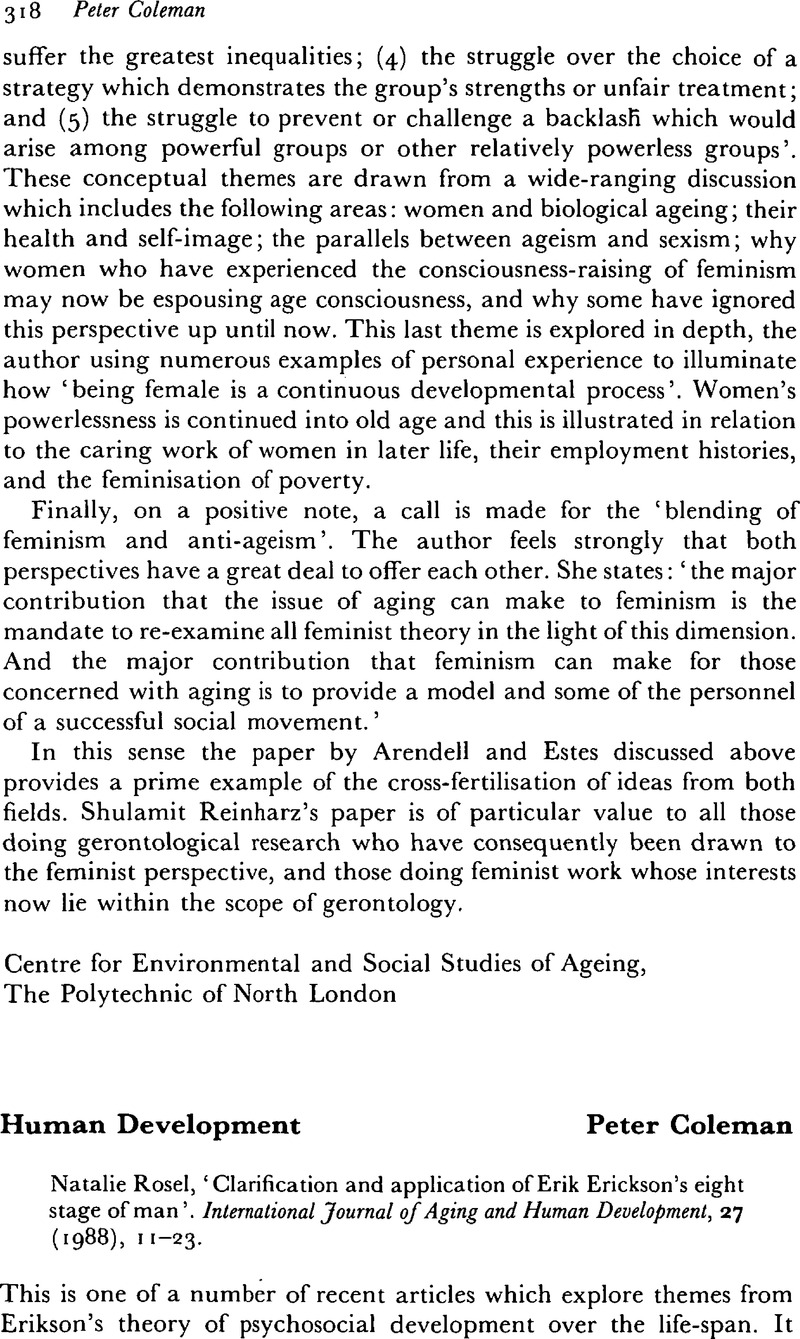No CrossRef data available.
Article contents
Human Development
Published online by Cambridge University Press: 14 November 2008
Abstract

- Type
- Abstracts
- Information
- Copyright
- Copyright © Cambridge University Press 1989
References
NOTES
1 Scott-Maxwell, F.The Measure of My Days. Penguin, London, 1979.Google Scholar
2 Page, L. and Wigginton, E.Aunt Arie. Dutton, New York, 1983.Google Scholar
3 Wertenbaker, L.Perilous Voyage. Little & Brown, Boston, 1975.Google Scholar
4 Erikson, E. Reflections on Dr Borg's life cycle. In Erikson, E. (ed.), Adulthood. Norton, New York, 1978.Google Scholar
5 Gutmann, D.Reclaimed Powers: Towards a New Psychology of Men and Women in Later Life. Basic Books, New York, 1987.Google Scholar
6 Thornton, S. and Brotchie, J.Reminiscence: a critical review of the empirical literature. British Journal of Clinical Psychology, 26 (1987), 93–111.CrossRefGoogle ScholarPubMed
7 Butler, R. N.The life review: an interpretation of reminiscence in the aged. Psychiatry, 26 (1963), 65–76.CrossRefGoogle ScholarPubMed
8 Fry, P. S.Structured and unstructured reminiscence training and depression among the elderly. Clinical Gerontologist, 1, (1983), 15–37CrossRefGoogle Scholar. Watt, L. M. and Wong, P. T. P. Successful aging: typologies and themes of reminiscence. International Journal of Ageing and Human Development (in press).Google Scholar


